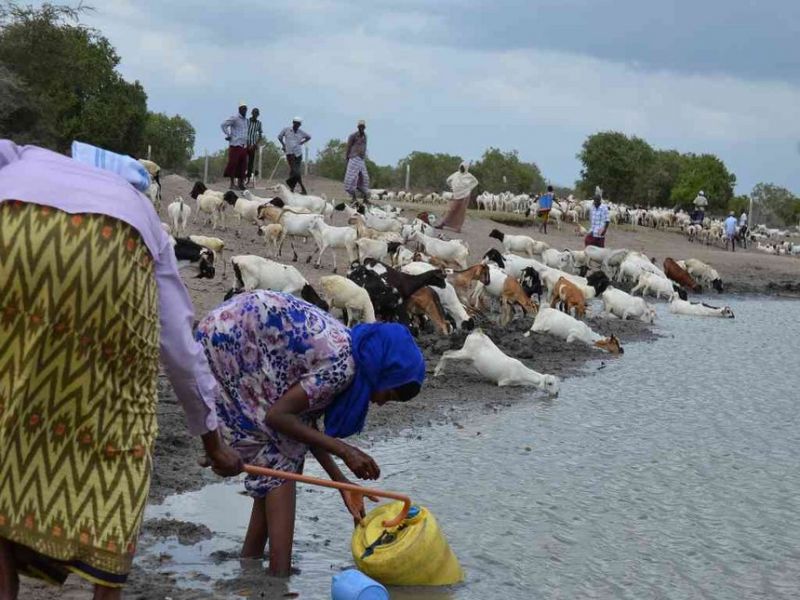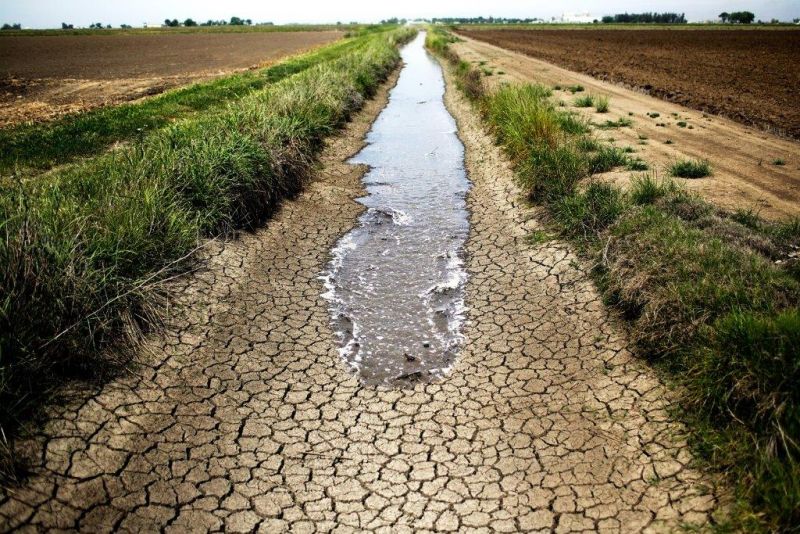18 Million Kenyans Still Have No Access to WASH Services
Published on by Water Network Research, Official research team of The Water Network in Social
Some 18 million Kenyans have no access to water and sanitation services with fears emerging that trans-boundary waters are becoming a source of conflict as water demand exceeds supply.

A woman fetches water for domestic use at a water pan in the outskirts of Holugho town, Garissa county. /STEPHEN ASTARIKO
During the inaugural opening of the Kenya Water Week on Monday at the KICC, it was revealed that only 58 per cent of Kenya's rural and urban populations have access to water.
"Urban areas are at 62.3 per cent while rural areas are at 50.2 per cent. The national sewerage coverage is only at 10.2 per cent," said Water CS Eugene Wamalwa when he officially opened the event.
But Wamalwa said that efforts are being made to bridge the funding deficit which has been the biggest obstacle to achieving Vision 2030 goals of 100 per cent water supply to all house holds.
“For example, for sector sustainability in water supply, onsite sanitation and sewerage services to be achieved in 2030, an investment of about Sh1.8 billion is required as per the National Master Plan 2030 of October 2013. Only Sh600 million is available for investment, leaving a gap of Sh1.172 billion,” Wamalwa said.
He said that more stakeholder collaboration is required to raise the country's water storage capacity from the current 180 million cubic metres to a threshold of 3.4 billion cubic metres by 2030.
 He said this would increase the water storage per capita from the current five cubic meters to 16 cubic meters.
He said this would increase the water storage per capita from the current five cubic meters to 16 cubic meters.
The CS said the government is reaching out to external agencies to bridge the funding gap to achieve the targets within the next 14 years.
He also said that policies developed to facilitate effective management of trans-boundary waters has been finalized and approved to mitigate the potential risks associated with water conflicts.
“The sub-sector has initiated bilateral agreements through MoUs with neighbouring countries to promote cooperative frameworks for sustainable management and equitable utilisation of shared water resources,” he said.
Water sources that Kenya shares with her neighbours include the Mara water basin, Lake Turkana, Sio-Malakisi water basin, Lake Chala and Jibe basins and river Omo and Daua basins.
Speaking at the same event, Belgian Deputy Prime Minister Didier Reynders said his government will support Kenya’s quest for water sustainability by funding various water projects across the country to the tune of Sh7.9 billion.
“Just last Friday, we approved a Sh2.6 billion water project in Mavoko to ensure adequate water supply for the area,” said the Deputy Prime minister.
He added that Sh1.8 billion will be released in the next few weeks for a similar project in Iten, Sh1.7 billion for Vihiga and Sh1.8 billion for Kajiado.
On his part, Water PS Harun Segor said the Water ministry has developed a financing mechanism to extend services to the underserved poor areas, as well as to promote up-scaling of low cost and innovative technologies to help utility organisations reach millions with clean and basic water sanitation.
Source: The Star Kenya
Media
Taxonomy
- Water Scarcity
- Water Access
- Sanitation
- Empowerment & Right To Water
- Water Supply
- Sanitation & Hygiene
- Water Management
- Water Sanitation & Hygiene (WASH)
1 Comment
-
Please email for details of solar powered desalination.